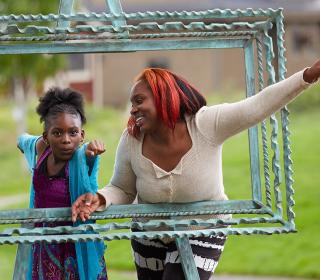Since 1966, people worldwide have advocated for literacy as an empowerment tool when the United Nations Education Scientific, and Cultural Organization (UNESCO) declared September 8 International Literacy Day (IDL). This year's theme, "Literacy and Skills Development," focuses on youth and adults and the link between skills and literacy.
"For ILD 2018, ‘skills’ means knowledge, skills and competencies required for employment, careers, and livelihoods, particularly technical and vocational skills, along with transferable skills and digital skills." - UNESCO EFA Global Monitoring Report 2012.

Au contraire
Contrary to what many may think, the U.S. is not the most literate country in the world. According to a study by Central Connecticut State University, the U.S. ranked 7th when compared with other nations. Literacy, as it is measured for the purpose of this study, includes youth and adults being able to read, write, and do basic math beyond a third-grade level. In the case of the U.S. that is approximately 36 million adults.
Poverty is the root cause of low literacy which in turn impact crime rates and poor health. Its cyclical effect ensures that generations are kept in poverty. According to the U.S. Census Bureau's 2016 estimates, 40.6 million American lived in poverty. And while black and Latinx poverty rates decreased, both groups still dominate demographically in the country's overall poverty rate.
The poverty rate for women was 13.4 percent as compared to 9.7 percent for men. Also, The Literacy Project Foundation found, "three out of five people in U.S. prisons cannot read and 85 percent of juvenile offenders have trouble reading."

Why Literacy Matters
According to Literacy Source, Seattle is one of the most literate cities in the U.S., yet many communities struggle daily with low literacy skills. Here are some facts:
- 1 in 6 adults lack the basic skills needed to get a livable wage paying job in Washington State.
- Nearly half of all adults at the lowest literacy levels live in poverty.
- Children from families with low levels of education are ten times more likely to have low literacy skills as compared to their peers from highly educated families.
Literacy is critical for personal, economic development, and community sustainability. A literate community means engaging in ideas, being less susceptible to isolation, overall healthier communities, and greater productivity.

What you can do
Volunteer: We can all contribute to the community. At Literacy Source, you can lend a helping hand and work toward improving literacy in the community.
Donate: Through our Economic Advancement program at YWCA, we are dedicated to improving literacy skills and job opportunities. Please continue to support the cause.
Advocate: Join the Educate & Elevate Adult Education campaign. As Kofi Annan said, "Literacy is a bridge from misery to hope." Let's continue to build that bridge together!

Salma Siddick is the Social Media & Content Manager at YWCA Seattle | King | Snohomish. An immigrant from Zimbabwe, Salma has lived, worked, and attended school on three continents.
We share the stories of our program participants, programs, and staff, as well as news about the agency and what’s happening in our King and Snohomish community.


